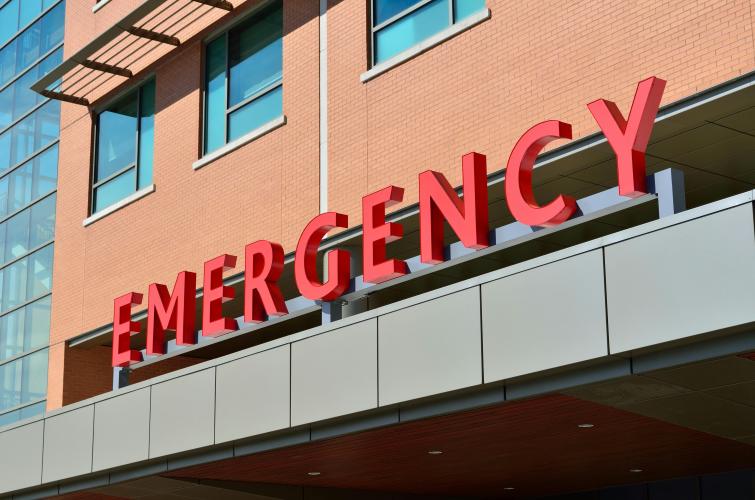Royal Hobart Hospital bed shortage sparks urgent call to action
AMA Tasmania spokesperson Dr Michael Lumsden Steel called on both levels of government and the public to help with the bed crisis at the Royal Hobart Hospital (RHH) this week.

“Lifesaving surgery is being cancelled due to a lack of inpatient beds, ambulances are ramping, and the emergency department has been overcrowded for days.
“On any given day, the RHH emergency department will care for around 200 patients, with 30-40% requiring admission into the hospital.
“The only control we currently have over admission beds is via elective surgery, and we all know that the term elective is a misnomer.
“Today alone, we already have over 30 patients’ bed-blocked in the emergency department (including EMU) waiting for an inpatient bed, and we haven’t even hit flu season.
“Over 100 people at the RHH who, while they may still need some medical care, no longer qualify for an acute care bed. Many of these people could be moved right now if there were Hospital in the Home (HITH), sub-acute, or other non-acute beds to go to.
“Governments, unions, and the public need to work together to fix this problem and ensure that acute care beds are available for acute care patients.
“AMA Tasmania calls on the Federal and State Health Ministers to hold a crisis meeting to determine what each can do to help stop this problem today, tomorrow, and in the future.
“We can’t keep lurching from crisis to crisis.
“Right now, the state government needs to open more beds wherever it can in the Hobart Private, aged care, or HITH to move sub-acute and non-acute patients out of the hospital beds required for critically ill patients today.
“The federal government needs to ensure that aged care high-acuity services are adequately funded and staffed to take patients out of the hospital and into appropriate care as part of their ordinary service.
“The federal government also needs to help provide the necessary infrastructure to NDIS high-acuity providers to remove NDIS patients from acute care beds.
“The public needs to help by working with the hospital to find suitable alternative accommodation for their loved ones who no longer require acute care but still require ongoing nursing and allied health care. That accommodation may be in an aged care home, in the family’s home with support provided by the HITH team or community nursing, or in a community hospital for a short period while other accommodation closer to home can be found.
“The state government needs to bring a geriatrician into the ED to help assess patients who would be better off receiving treatment in their homes or an aged care setting rather than in an acute hospital bed.
“The state government needs to implement a realistic policy requiring non-acute patients to be given no more than three options to move into another care setting before being made to do so.
“While this may seem harsh, it is not when you consider there are patients requiring lifesaving surgery being denied that surgery today because there are not enough ICU beds available, because there are not enough medical beds available to move patients out of ICU.
“Bed block leads to worse patient outcomes, and for some, it will shorten their lives if they cannot get the cancer or cardiac surgery they require in a timely way.
“In times of crisis, as we saw in COVID, all levels of government must pull out all stops to minimise patient harm and suffering.
“The RHH is in crisis. While we cannot fix this today, we must fully acknowledge and quantify the healthcare shortfalls in staff, bed capacity, diagnostic imaging, allied health, and community support to correct the problem. Though this current situation is Hobart-centric today, the Launceston area could just as quickly be impacted by this shortfall at any time.
“This is only going to get worse as our population ages.
“Planning needs to begin now on the 100+ bed sub-acute hospital at St John’s Park and the new inpatient mental health facility in the same location.”>>>ENDS



